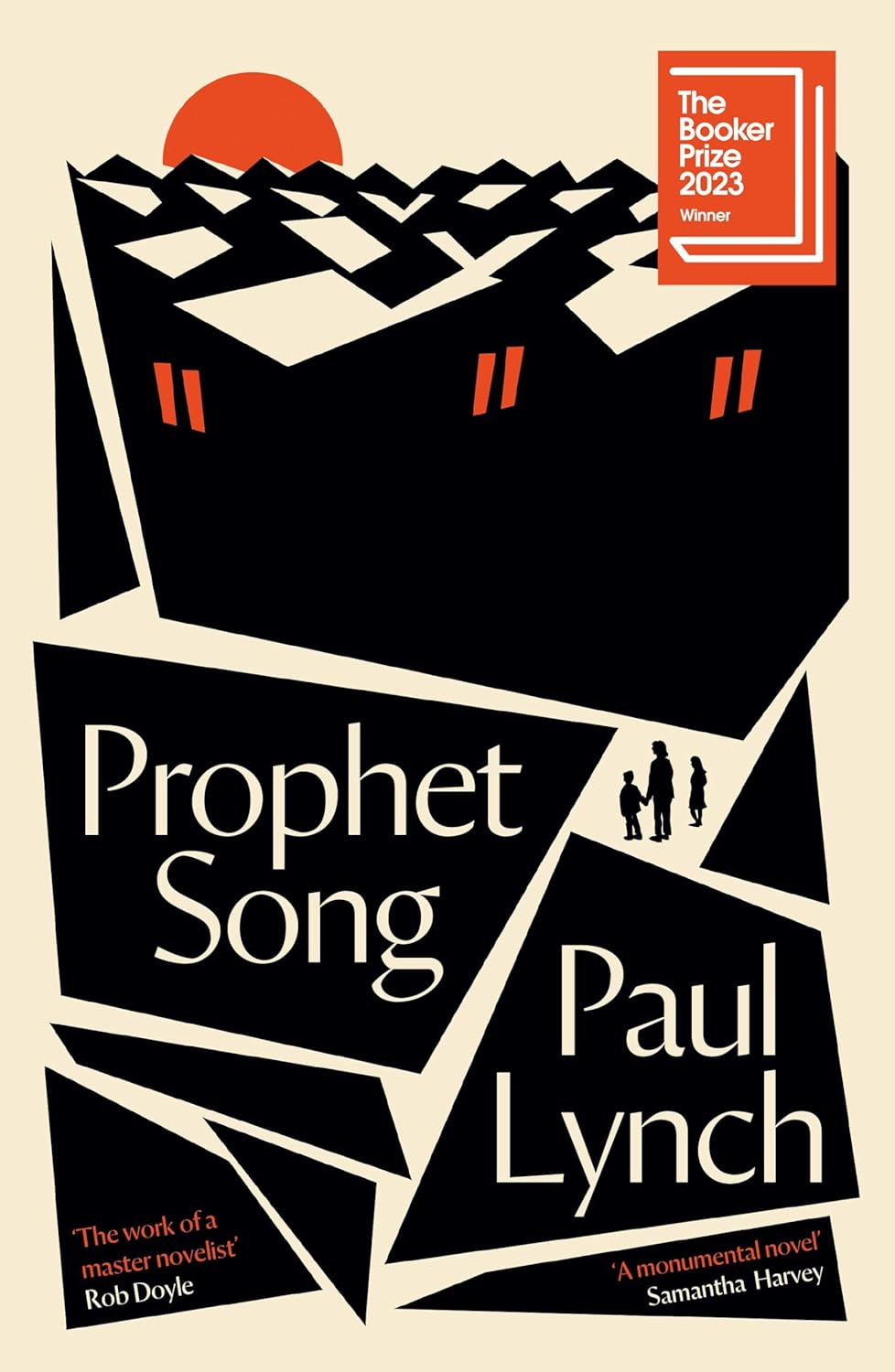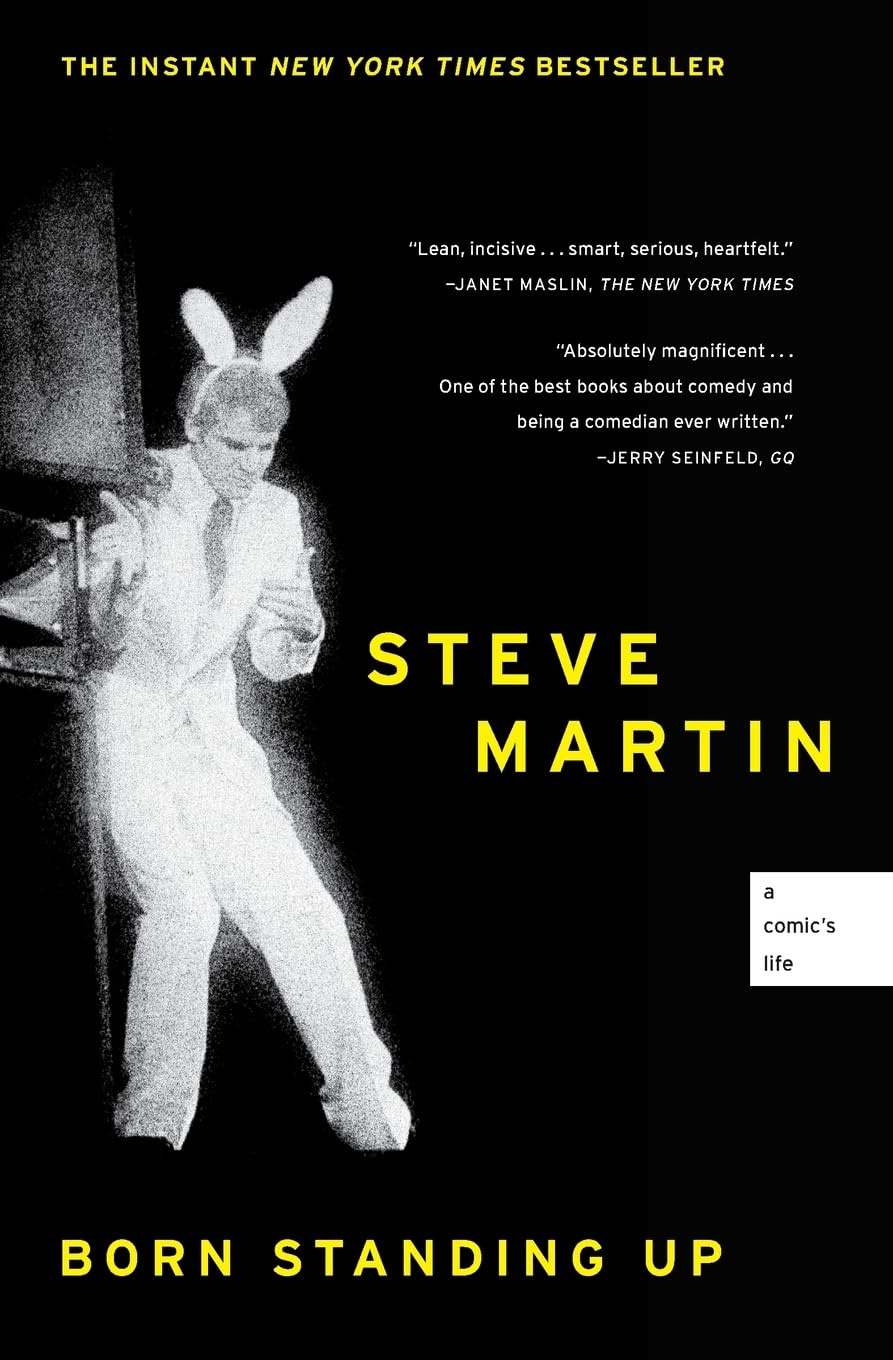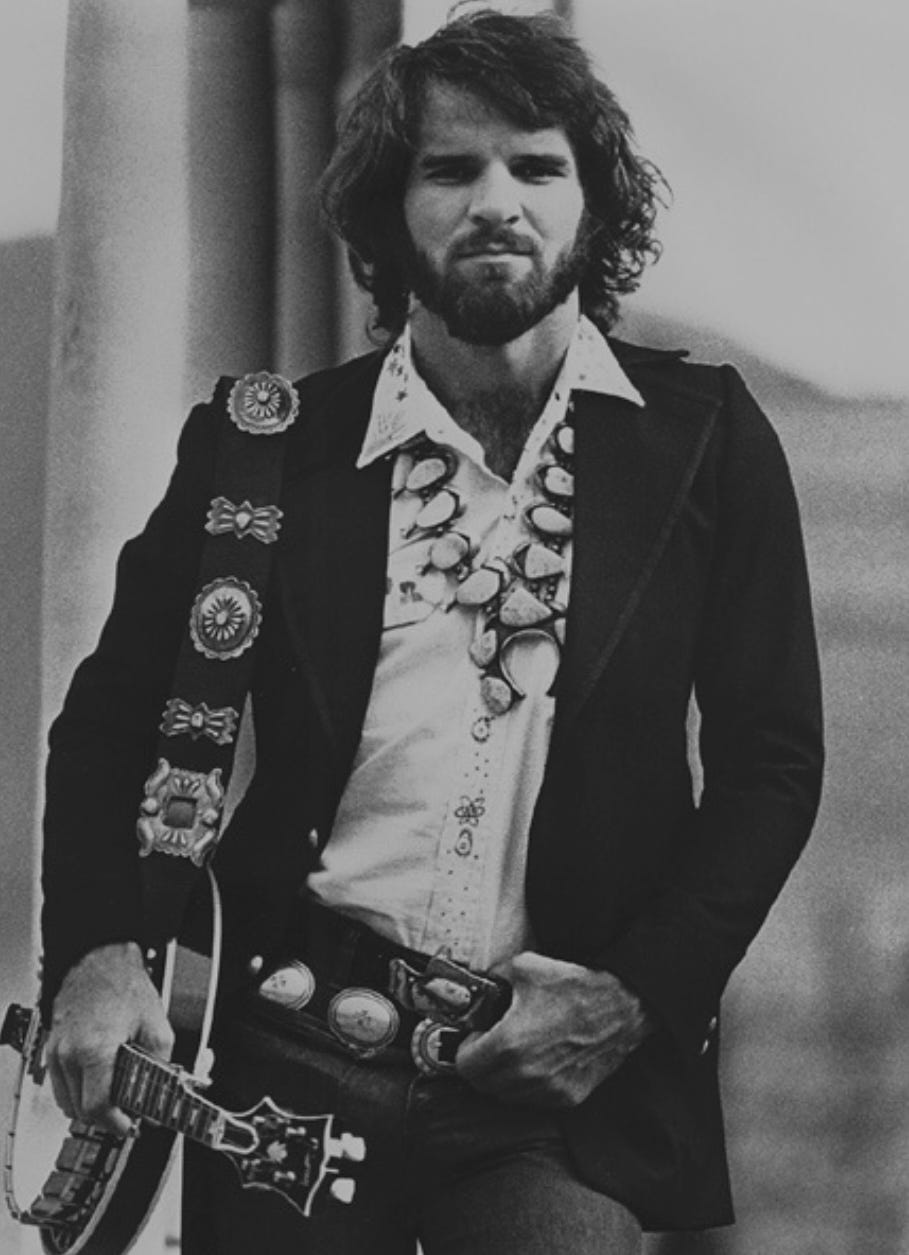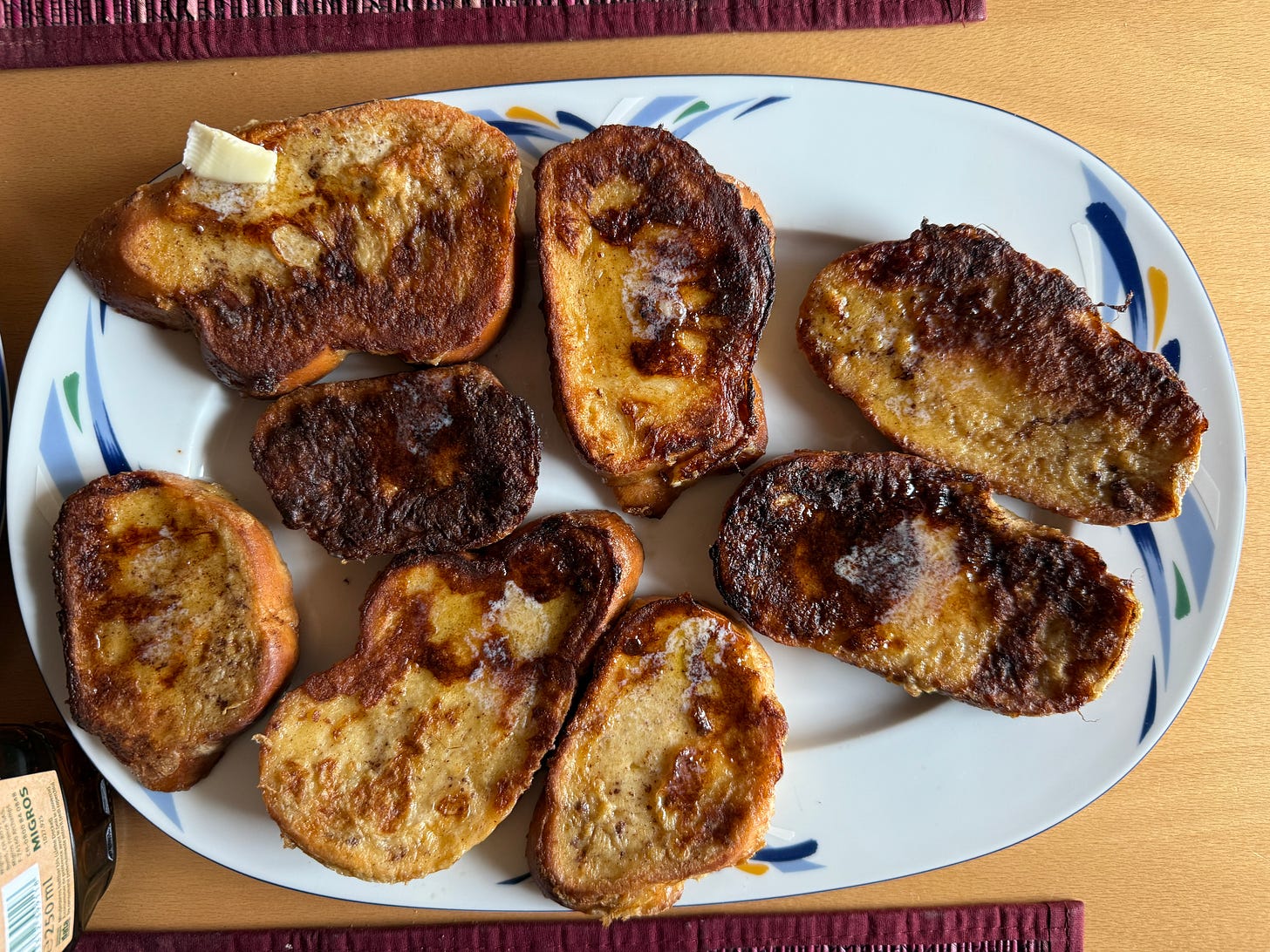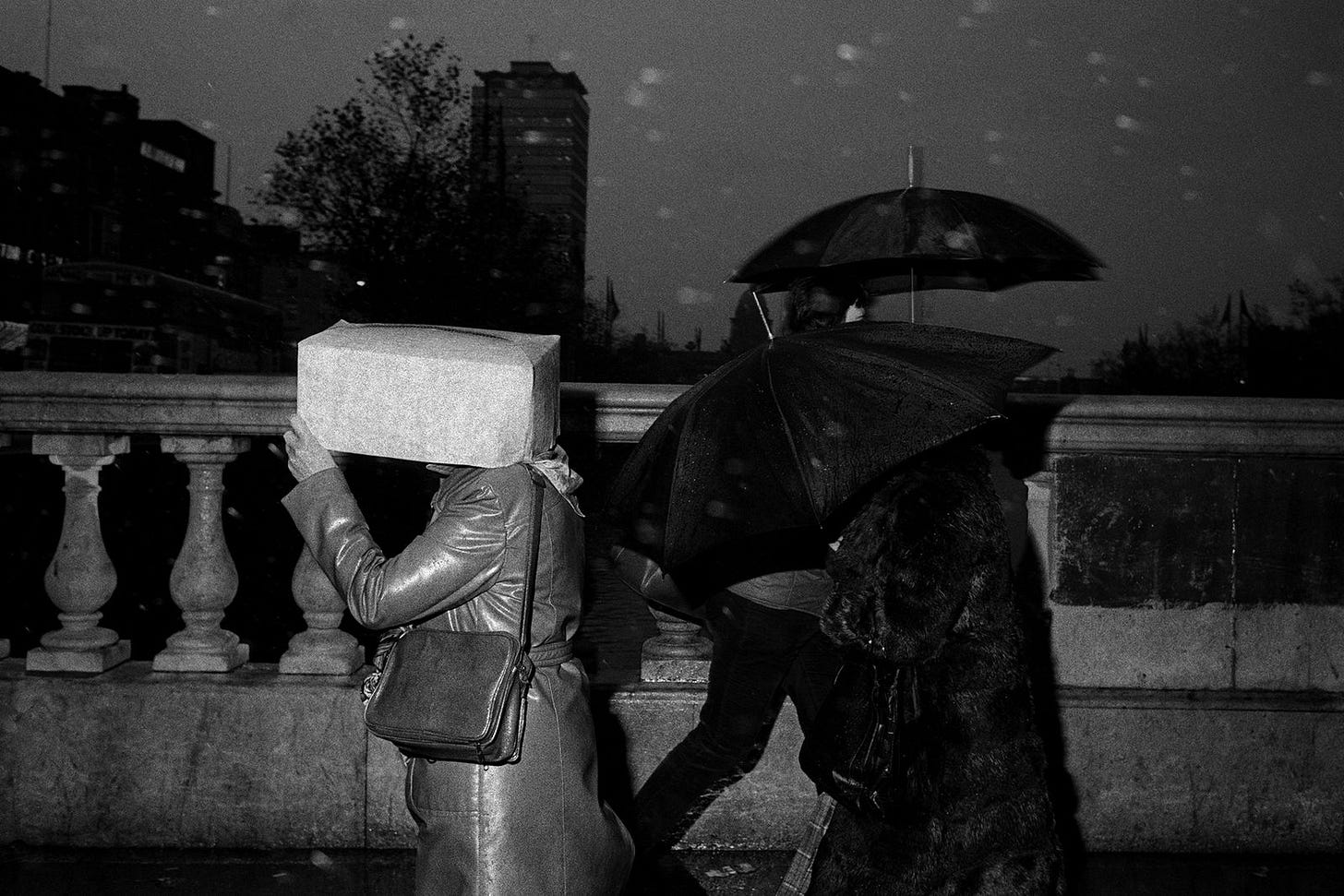
Good evening!
I just returned from Switzerland, which was fun to visit after reading Hotel du Lac and Eurotrash before the trip.
This past week, I read Paul Lynch’s The Prophet Song, a speculative literary fiction novel that reimagines Ireland as governed by a totalitarian regime. I read it slowly over the course of the week in small increments. I’m not sure I’d recommend this approach, as it gave me a few nightmares.
After finishing The Prophet Song, I picked up a lighthearted memoir, Steve Martin’s Born Standing Up, which I really enjoyed. Anyway, let’s get into it!
read📖→
The Prophet Song by Paul Lynch
Prophet Song, which won the 2023 Booker Prize, follows Eilish Stack, a scientist and mother-of-four, in a counterfactual Ireland controlled by a repressive authoritarian state.
Overview: Prophet Song is written in the close third-person perspective of Eilish Stack. Although it has chapter and section breaks, Lynch does not use quotation marks or paragraph breaks.
In Lynch’s version of Ireland, the “National Alliance Party” has taken over and governs with an iron fist through the Emergency Powers Act, recently passed “in response to the ongoing crisis facing the state.”
The novel opens with members of the secret police, the Garda, knocking on Eilish’s door at night. The two officers are looking for Larry, her husband, a leader of the teachers’ union that has been on strike. “It’s nothing to worry about,” they assure her.
Not long after the visit, the Garda detain Larry. Eilish makes countless inquiries, but Larry has seemingly disappeared into the labyrinth of the authoritarian state. Eilish finds herself powerless. She laments to her lawyer, Michael Given: “The state is supposed to leave you alone, Michael, not enter your house like an ogre, take a father into its fist and gobble him, how can I even begin to explain this to kids, that the state they live in has become a monster?”
As Eilish deals with the fallout of Larry’s disappearance, she tries to hold her family together. The mundane realities of her domestic life sharply contrast with the curfews, airstrikes, and riots that erupt under this totalitarian regime. She scrubs kitchen countertops even as “an explosion close by shak[es] the ground so that she must hold onto the sink with two hands.” Her sister, Áine, who lives in Toronto, urges her to flee: “I wish you would listen to me, Áine says, history is a silent record of people who did not know when to leave.”
Lynch follows Eilish as she confronts these horrific realities and loses more of herself and her family to the state.
Opinion: Prophet Song is a challenging but impressive read, both stylistically and thematically. This book is a rare one that I can discuss the themes in depth without spoiling the plot, so my review is a bit longer this week!
Lynch writes Prophet Song in a kind of Joycean language—there are no quotation marks or paragraph breaks. I’ve read a few modern novels by Irish authors that take a similar approach (most recently Intermezzo and Milkman). Lynch’s writing is much easier to follow than a novel like Milkman, but the reading experience is still stressful and almost claustrophobic. The lack of quotation marks is particularly effective. Lynch blurs the distinction between dialogue and the characters’ internal thoughts.
This writing style reflects Lynch’s well-crafted themes. I’ll touch on a few themes and symbols without revealing any plot spoilers.
How do we define truth and reality?: The nationalist regime has exposed the fragility of institutions and traditions. As Larry says to Eilish, “tradition is nothing more than what everyone can agree on—the scientists, the teachers, the institutions, if you change ownership of the institutions then you can change ownership of the facts, you can alter the structure of belief, what is agreed upon.”
While the nationalists redefine political and societal truths, the characters struggle to distinguish their dreams from their waking reality. At one point, Eilish dreams of an inspector coming into her house. He tells her, “You call yourself a scientist and yet you believe in rights that do not exist, the rights you speak of cannot be verified, they are a fiction decreed by the state, it is up to the state to decide what it believes or does not believe according to its needs, surely you understand this.” She “tries to scream” and shouts, “I want to wake up, and he says, but you are awake . . . .” These dream states give the novel a surrealistic feel.
Her father’s dementia also mirrors the unsettling experience of living under this regime. Eilish describes him as anxious, with a “rheum of panic in his eyes.” Her father, Simon, is “in decline and has no awareness of his illness, sometimes it seems that he suspects something is wrong but cannot see his own mind so he turns that suspicion outward, if he’s not false then it is the world that is false, there is always someone else to blame.”
The setting of Prophet Song is also disorienting. The novel opens at night with Eilish looking out at the garden: “The night has come . . . . How the dark gathers without sound the cherry trees. It gathers the last of the leaves and the leaves do not resist the dark but accept the dark in whisper.” After the Garda officers leave, she notes: “The darkening garden not to be wished upon now, for something of that darkness has come into the house.”
Light, which can represent truth or knowledge, is depicted as faint. The sources of light mentioned are described as indirect, flickering, or even “dirty”:
“She drives through rain and the hesitating light”
“the doomed ceiling light where a moth is trapped and beats berserkly against the glass . . .”
“dirty light unmasking the room”
“the winter light uncertain”
“blue-cold light”
“red light”
“She watches the moon pass through the house, the bruised light of dawn reaching for Ben in the cot, the spoiled light reaching for Molly who is woven in sleep like a young child to her body.”
The characters are also often caught in the rain. Like in the regime, they lose their points of reference and sense of reality: “The winter rain falls lush and cold, the passing days held numb within the rain so that it seems to mask time’s passing, each day giving to faceless day until the winter is at full bloom.”
Additionally, they seem ill-equipped to deal with inclement weather. Eilish struggles to drive in the rain and, at one point, forgets to “pack their raincoats or bring an umbrella.” Larry struggles to put on his raincoat several times. In one instance, he is “fighting to get into his raincoat” and in another, “he reaches for his raincoat . . . the arm of the raincoat is inside out.” Amid unrest on the streets of Dublin, a man in a “black raincoat stumbles and the raincoat flies outward.” If Lynch is using the rain to reflect the unsettling and confusing nature of the repressive state, the characters’ lack of gear might indicate that they are ill-equipped to defend themselves against it.
Would you leave? When?: Lynch does not provide many background details for the political climate of Prophet Song. We learn that a populist right-wing movement controls the nation and that there are “nationalists” and “rebels.” However, Lynch doesn’t explain why or how this regime took control. The nationalists are painted in dull, flat colors. The Garda that appear on Eilish’s doorstep are “faceless in the dark.” A crony in the Department of Justice has “a face that does not alter from its single expression, the colorless eyes, the mouth, and what it says although the mouth does not speak . . . .”
Typically, dystopian novels ask the reader to consider if they might be complicit in such a regime. I don’t think that’s what Lynch is trying to do here. As readers, we are not asked to empathize or even understand the nationalists. Prophet Song instead asks: When do you leave? Would you? Would you fight back?
Eilish is a biochemist dedicated to identifying scientific truths, yet she has seemingly misunderstood the conditions in her own country. Eilish notes, “All your life you’ve been asleep, all of us sleeping and now the great waking begins.” Has she woken up too late? While Eilish initially dismisses her sister’s admonishment to flee, she later thinks:
History is a silent record of people who could not leave, it is a record of those who did not have a choice, you cannot leave when you have nowhere to go and have not the means to go there, you cannot leave when your children cannot get a passport, cannot go when your feet are rooted in the earth and to leave means tearing off your feet.
The end of the world is a local event: Prophet Song is more than a cautionary tale about when to leave a failing state. It is an intimate, personal account of an ordinary family living through this totalitarian state and slowly realizing the depths of its repression and harmful tactics.
Through Eilish’s experience, we see that what we take for granted—institutions, truth, rights, simply not being harmed by the state—is not guaranteed. Eilish dreams of a government officer saying, “You speak about this word rights as though you understand the word rights, show me what rights were born with man, show me what tablet they are written on, where nature has decreed it so.”
The precariousness of our institutions might be shocking, but Lynch stresses that this story is not a world-ending, biblical apocalypse of “the world devoured by fire.” As Eilish observes, “it is vanity to think the world will end during your lifetime in some sudden event.”
Our world feels local, but brutal regimes take over countries and environmental catastrophes occur throughout the world on a never-ending cycle. Our world persists, and nature is indifferent to man’s actions. Eilish’s son, Bailey, warns her about a symbolic worm: “The world is turning, he says, it is gaining power, the worm does what it likes.” But he also notes, “the worm is a fact, he says, it doesn’t care whether you like it or not.”
What is the prophet song? The prophet sings “that the world is always ending over and over again in one place but not another and that the end of the world is always a local event, it comes to your country and visits your town and knocks on the door of your house and becomes to others but some distant warning, a brief report on the news, an echo of events that passed into folklore . . .”
Criticisms: While this novel is impressively crafted and thematically layered, some readers might have issues with the overall pacing and bare-bones world-building. The last fifty pages felt a bit rushed compared to the gradual pacing of the rest of the novel.
Lynch includes limited background information for the characters and the political climate of Prophet Song. As I’ve noted above, I think this structure allows the reader to identify with the victims rather than the perpetrators. However, Lynch also provides scant information on Eilish and her family, and I think it might be difficult for some readers to care about them. That said, I do think this minimalist, allegorical structure is the overall point of the novel and is well-executed.
Overall: I wouldn’t recommend Prophet Song to everyone. The structure is somewhat unwieldy, and the topic is quite dark. However, I would highly recommend it to someone who likes speculative literary fiction.
Rating: 4.7/5
Genre: Literary Fiction (Dystopia/Speculative Fiction)
Notable prizes/book clubs/lists: Booker Prize Winner (2023), Longlisted for Dublin Literary Award (2025)
Page count: 259 pages
Audio: 8 hours 32 minutes
Movie/TV pairings: Never Let Me Go
Born Standing Up: A Comic’s Life by Steve Martin
Born Standing Up is a memoir by Steve Martin about his early life and career and his decision to quit stand-up comedy in 1981.
Overview: Martin writes that Born Standing Up “is not an autobiography but a biography, because I am writing about someone I used to know.” He begins his memoir in 1965 San Francisco, when he was performing with his banjo and driving down to Los Angeles to audition his comedy act.
He then takes us back to his early childhood in Waco, Texas. His family moved to Los Angeles, and Martin worked at Disneyland at age ten, selling guidebooks. Martin was always interested in performing, and as a teenager, he worked at a magic shop and developed a magic act. Throughout his childhood, Martin had a complex relationship with his father, who would spank him with a switch or a paddle when he misbehaved. After one aggressive beating that left him “covered in welts,” his relationship with his father became a formal, distant one. The two hardly spoke.
The rest of the memoir progresses chronologically, tracing his fledgling comedy career until he landed a recurring gig on The Tonight Show and eventually hosting Saturday Night Live. His stand-up performances became increasingly popular, and he performed in front of tens of thousands of people. However, there was a darker side to his growing fame. Regular conversations “became difficult, fraught with ulterior motives,” and the “normal rules of social interaction no longer applied.” Ultimately, he abandoned stand-up because he felt like he had “lost contact” with what he was doing.
Opinion: Celebrity memoirs are too often presented as a meandering string of stories and childhood memories. I appreciate that Born Standing Up is a concise memoir with a tight focus—he explores why he did stand-up and why he walked away from it at the height of his stand-up career.
Martin is obviously a comedian, and this memoir was fun to read. I read it in print, but I could hear his voice in my head as I read it. But it also has a lot of heart, and he reflects on his family in a vulnerable and honest way without being trite or maudlin. That said, I was less interested in the specifics of his comedy acts and didn’t personally find the oddball comedy acts particularly funny.
Overall: Born Standing Up isn’t groundbreaking, but I recommend it to someone looking for a smart, serious, and funny celebrity memoir.
Rating: 3.9/5
Genre: Nonfiction-Memoir (Comedian)
Page count: 207 pages
Audio: 4 hours 2 minutes
Movie/TV pairings: Father of the Bride, Saturday Night Live
consumed 🎬🎧🗞️→
The Coachella performances were a welcome distraction from a wild week in the news—tariff rates I couldn’t have imagined, Harvard funding cuts, law firms bending the knee.
I loved Benson Boone performing with Brian May from Queen and watching Charlie XCX and Lorde perform “girl, so confusing.”
I just finished season 3 of The White Lotus. Was anyone else underwhelmed? That said, it did lead me down a fascinating rabbit hole on Blackpink, since Lisa, who was in the K-pop group, also acts in this season.





